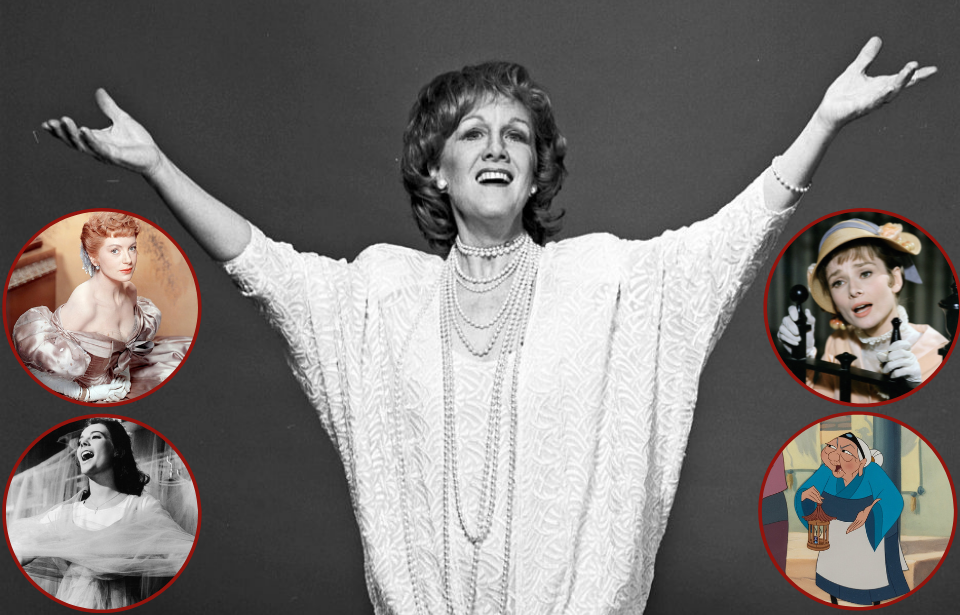Although the name “Marni Nixon” may be unfamiliar to you, you have undoubtedly heard her voice. Marni Nixon has one of the most recognizable singing voices in Hollywood history yet went uncredited for many of her roles. Despite this, her voice continues to live on.
Her voice was used in ‘Diamonds Are a Girl’s Best Friend’
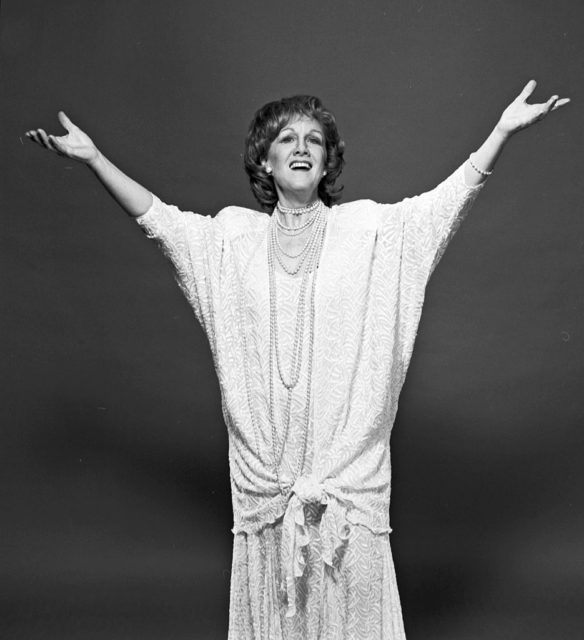
Marni Nixon was born on February 22, 1930, in Altadena, California. Her Hollywood career started with Joan of Arc (1948) when she was 18 years old. In this film, Nixon sang the voices of the angels heard by actress Ingrid Bergman. From that point on, her voice would be featured in some of the most famous Hollywood musicals of all time.
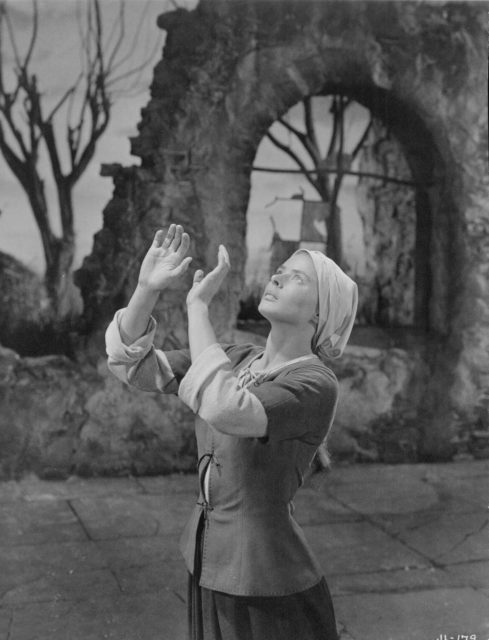
Nixon quickly gained a reputation around Hollywood for having perfect pitch. She could read any piece of music handed to her, making her extremely desirable by big Hollywood studios. In 1953, Nixon dubbed Marilyn Monroe‘s high notes for the iconic song “Diamonds Are a Girl’s Best Friend” in Gentlemen Prefer Blondes.
The King and I and West Side Story
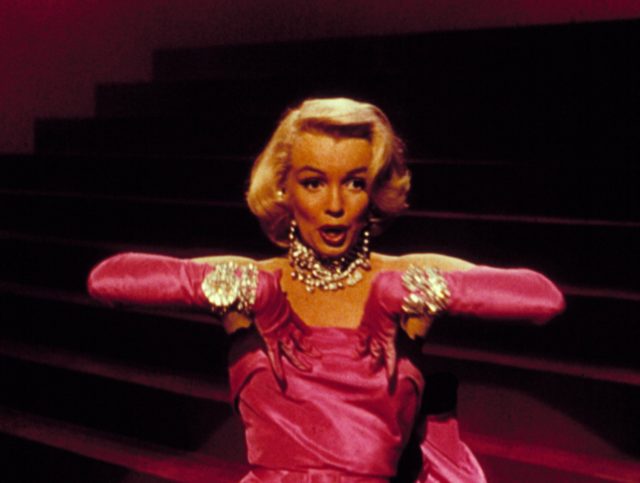
Marni Nixon’s voice was also used in some of the most iconic Hollywood musicals of all time, including The King and I, West Side Story, and My Fair Lady.
In 1954, Marni got a call to ghost Deborah Kerr’s singing voice for The King and I. Deborah Kerr later recalled how the process went. “Whenever there was a song to be sung in a scene, I would get up and stand next to her and watch her while she sang, and she would watch me while I sang. After we recorded that song, she would have to go to the filming of it and mouth to that performance. So she had to be very aware of what she was going to do and how she was going to sing the song ahead of time.”
Things weren’t so great for Marni Nixon behind the scenes of the movies she worked on. Hollywood studios wanted to use Nixon’s voice but didn’t want anyone to realize what they were doing. Deborah Kerr was nominated for an Academy Award in 1956 for her role as Anna in The King and I, while Marni Nixon received only about $420 total for her work on the film – despite hundreds of thousands of copies of the soundtrack being sold.
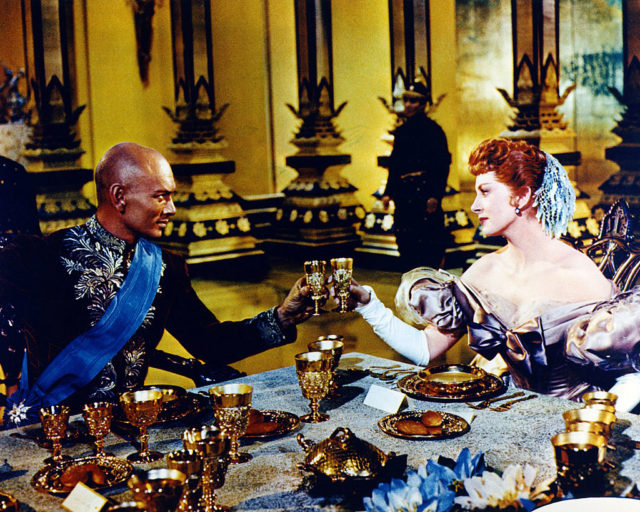
In 2007, Marni Nixon revealed it was common for film studios to threaten her, saying, “you always had to sign a contract that nothing would be revealed. Twentieth Century Fox, when I did The King and I, threatened me. They said if anybody ever knows that you did any part of the dubbing for Deborah Kerr, we’ll see to it that you don’t work in town again.”
Despite going unrecognized, Marni Nixon felt that her relationship with Deborah Kerr was very collegial. The anonymity didn’t really bother Nixon until she worked on West Side Story.
Natalie Wood, who played Maria in the film, was aware that Nixon was recording tracks for the film. Wood believed that only certain high notes sung by Marni Nixon would be used in the film’s final version.
The production company kept Natalie Wood in the dark because they were petrified she would pull out of the film if she knew Nixon was actually going dub all her songs. The studio let Wood record all of Maria’s songs despite knowing full well that none of these recordings would be used in the final version of the film. While Natalie Wood was filming her scenes, she sang along with her own recordings rather than Nixon’s to allow her to believe that her recordings would be used in the final version of the film.
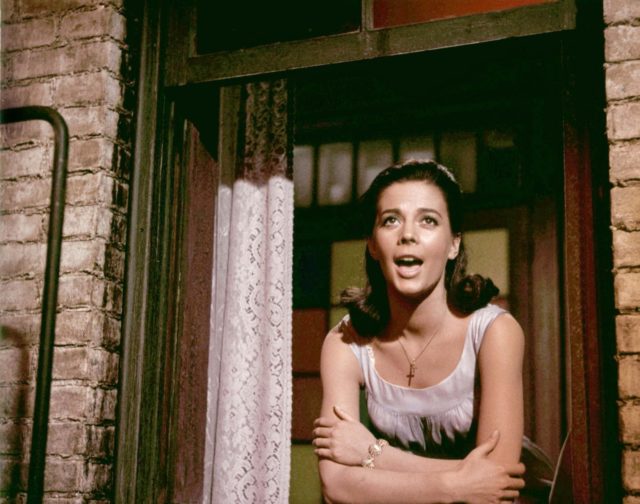
Marni Nixon felt very uneasy while on the set of West Side Story. The producers would mock Wood’s voice behind her back while telling the actress that her voice was wonderful to her face. All the while, they knew that her tracks would never be used in the film.
Once West Side Story was done filming, Natalie Wood was told that her voice wouldn’t be used in the film. Apparently, upon hearing this, Wood “was just absolutely furious, and stomped out of the studio in a total rage.”
West Side Story went on to sweep the 1962 Academy Awards – a feat they would have been unable to do without Nixon’s singing voice. Yet Marni Nixon was hardly paid anything for her work on the musical and went completely uncredited. In fact, she was paid so little that Leonard Bernstein, who was the musical’s composer, gave her a percentage of his own cut from the soundtrack.
After her work on West Side Story, Marni Nixon spoke out against the treatment of voice ghosts. Back then, old Hollywood wanted recognizable stars. Studios didn’t want to promote the use of voice ghosts because they claimed if the public knew the star was not singing, it might hurt the box-office appeal of the star and the movie.
A good relationship with Audrey Hepburn
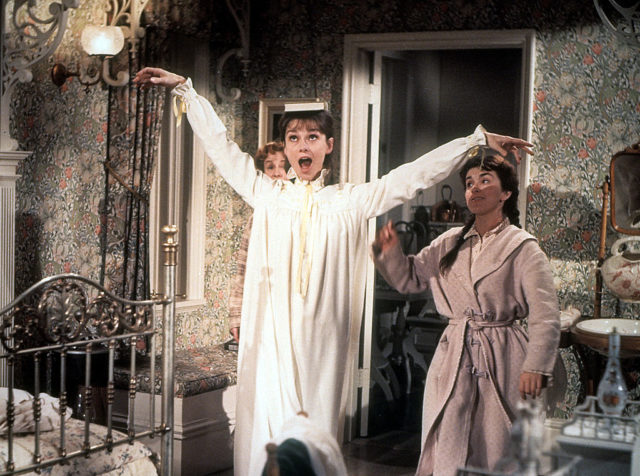
Marni Nixon worked with Audrey Hepburn while filming the 1964 musical, My Fair Lady. Nixon’s relationship with Audrey Hepburn seemed much more friendly than hers had been with Natalie Wood.
Audrey Hepburn used to drive Nixon to set every day in her limousine. Marni Nixon also sat in on Audrey Hepburn’s voice lessons, “so I could hear not only the Cockney and the upper-class British, which are two different voices. But I also had to get her very unique speech patterns, so I had to listen very carefully so I could catch it.”
There was already drama surrounding the choice of Audrey Hepburn as Eliza Doolittle in the film adaptation of My Fair Lady. Actress Julie Andrews had originated the role of Eliza Doolittle on Broadway, and many people assumed Andrews would get the same role in the Hollywood film.
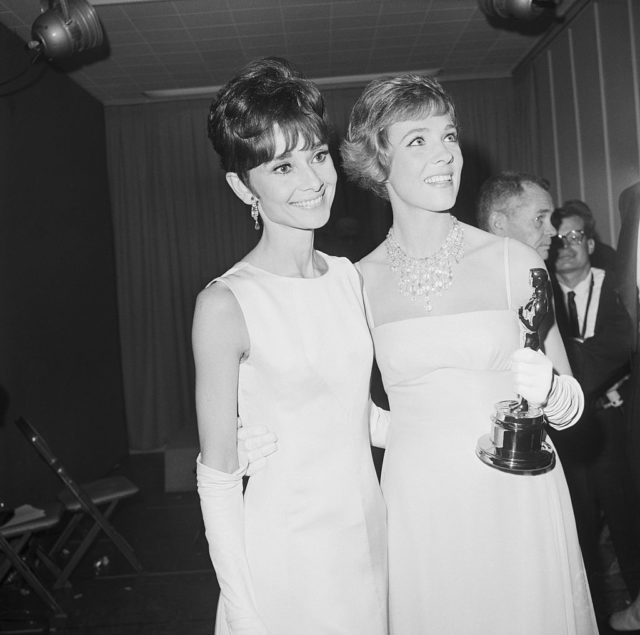
Audrey Hepburn put a lot of pressure on herself in this film because of the initial backlash of her getting the role over Julie Andrews. Like Natalie Wood, Audrey Hepburn was desperate to sing her own songs in the movie. Hepburn thought that “if she had taken Julie’s place and then couldn’t sing, it would reflect very badly on her.” As such, Audrey Hepburn took intense voice lessons and would sneak into the sound stage and try to record good enough takes that they would agree to use her voice in the final cut of the movie.
In 2015, Nixon told People magazine that she had been given the tapes of Audrey Hepburn singing. Nixon revealed that Hepburn could be heard on these tapes saying, “Oh Darn, I think I can do better. Maybe I can’t.” Hepburn was extremely hard on herself, but she never stopped trying.
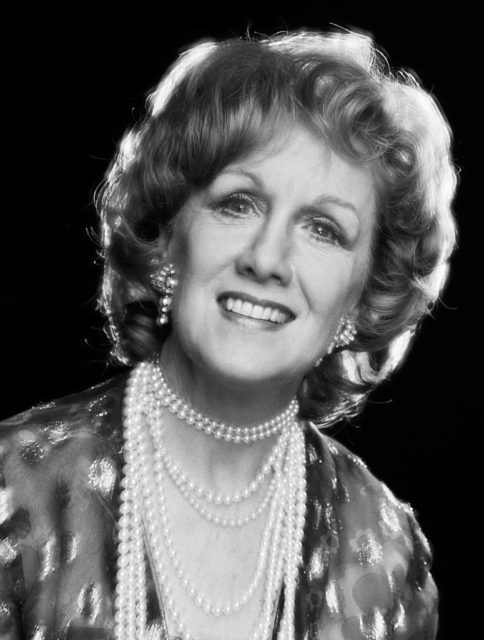
Eventually, production broke the news to Hepburn that despite all her training and practicing, almost none of her singing voice would be used in the final cut of My Fair Lady. Hepburn responded “oh,'” and walked off the set. The next day, Audrey Hepburn came back and apologized to everyone for her “wicked” behavior- which really wasn’t wicked at all.
In the end, Audrey Hepburn and Marni Nixon had an excellent working relationship on the set of My Fair Lady. In 2015, Marni explained that there was “only appreciation” between the two costars. “She was trying to be as helpful as she could to tell me how to pronounce certain things and approve of it to make sure it sounded like her – because if she couldn’t do it, then she’d work hard to get the pronunciation into me. She was spectacular that way.”
Later credits
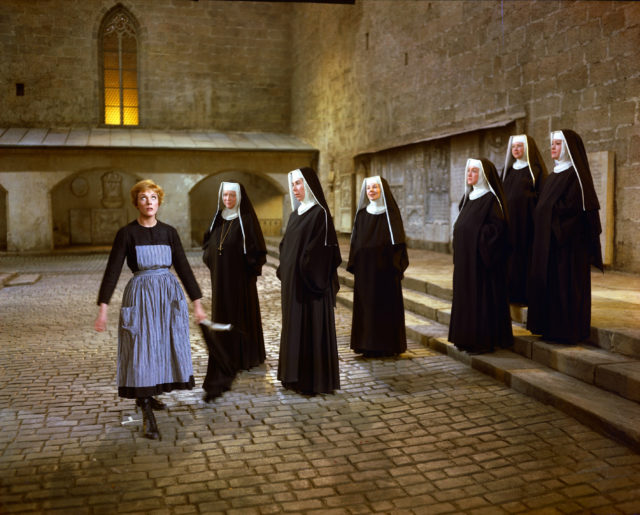
Although Marni Nixon went uncredited in most of the movies she worked on, many people knew that Hollywood studios had been using her voice. A 1964 Time magazine article described her as “the ghostess with the mostest.”
Marni Nixon secured a role in The Sound Of Music, in which she played Sister Sophia. You might recognize her line in the song “How do you solve a problem like Maria.” Marni is the nun who sings the line “but her penitence is real.” Of course, the lead in the Sound of Music didn’t need any vocal help.
In 1964, Marni Nixon took center stage when she played Eliza Doolittle in the 1964 revival of My Fair Lady at City Center New York.
More from us: 10 Minor Details Brilliantly Hidden in Disney Movies
When she wasn’t singing on Broadway or in movies, Marni Nixon was teaching at the California Institute of the Arts in Valencia, where she was the founding director of the vocal department. In 1998, she was the singing voice for Grandmother Fa in Disney’s Mulan.
Marni Nixon passed away in July 2016 at age 86 from breast cancer. She continued singing well into her 80s.
